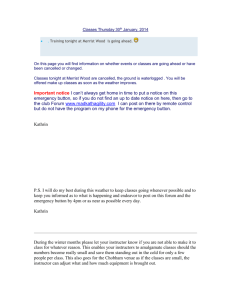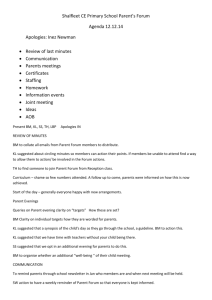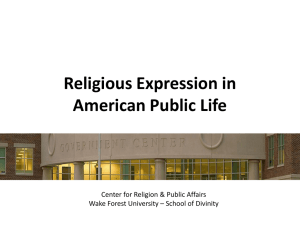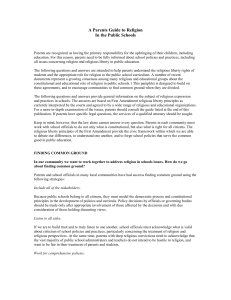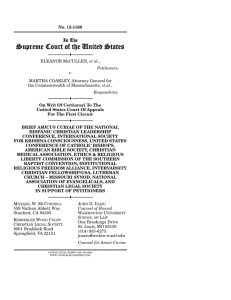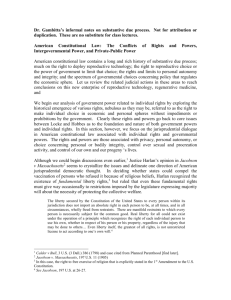Religion in the Classroom
advertisement
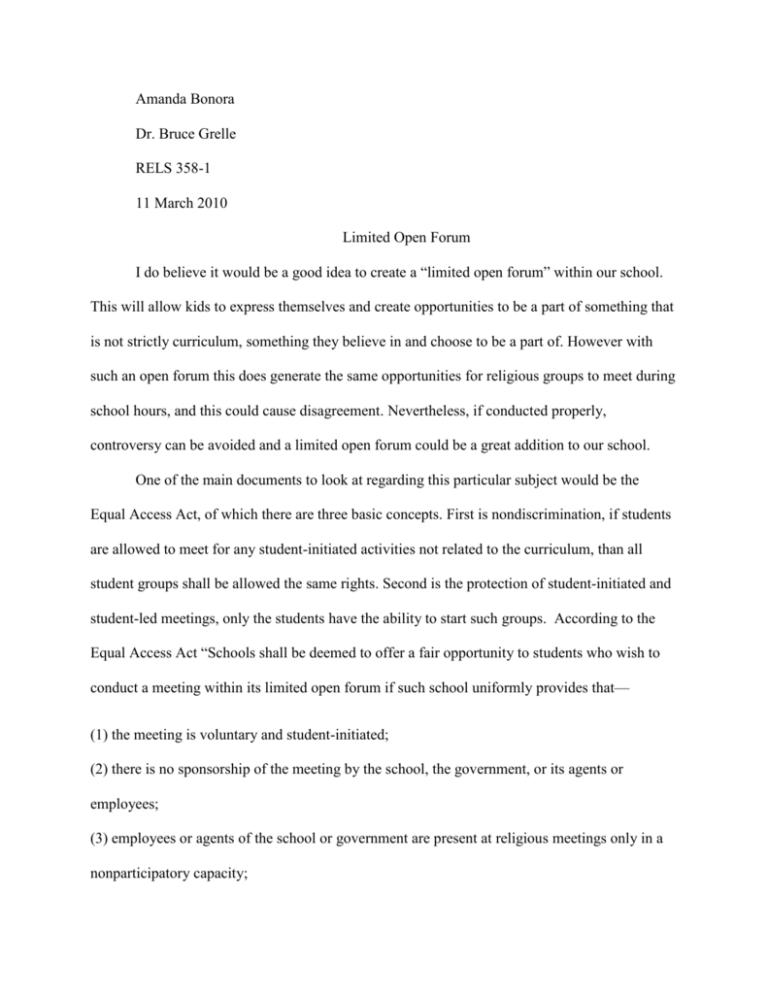
Amanda Bonora Dr. Bruce Grelle RELS 358-1 11 March 2010 Limited Open Forum I do believe it would be a good idea to create a “limited open forum” within our school. This will allow kids to express themselves and create opportunities to be a part of something that is not strictly curriculum, something they believe in and choose to be a part of. However with such an open forum this does generate the same opportunities for religious groups to meet during school hours, and this could cause disagreement. Nevertheless, if conducted properly, controversy can be avoided and a limited open forum could be a great addition to our school. One of the main documents to look at regarding this particular subject would be the Equal Access Act, of which there are three basic concepts. First is nondiscrimination, if students are allowed to meet for any student-initiated activities not related to the curriculum, than all student groups shall be allowed the same rights. Second is the protection of student-initiated and student-led meetings, only the students have the ability to start such groups. According to the Equal Access Act “Schools shall be deemed to offer a fair opportunity to students who wish to conduct a meeting within its limited open forum if such school uniformly provides that— (1) the meeting is voluntary and student-initiated; (2) there is no sponsorship of the meeting by the school, the government, or its agents or employees; (3) employees or agents of the school or government are present at religious meetings only in a nonparticipatory capacity; (4) the meeting does not materially and substantially interfere with the orderly conduct of educational activities within the school; and (5) nonschool persons may not direct, conduct, control, or regularly attend activities of student groups.” The third concept is local control; the school shall still have authority to maintain order and discipline for the protection and well being of the students and faculty. According to Finding Common Ground “public schools uphold the First Amendment when they protect the religious liberty rights of students of all faiths or none.” Any non-curriculum group wanting to form a club within the school may do so as long as each individual club practices and is upheld to the same rules and regulations. As long as these guidelines are followed the school should remain consistent with the religious liberty clauses of the First Amendment, and away from controversy and costly litigation. However if you choose not to establish such a forum I agree that the challenge of helping students learn to “live with their deepest differences” needs to be addressed and that a course on world religions would be a great idea. “Public schools may not inculcate nor inhibit religion. They must be places where religion and religious conviction are treated with fairness and respect. Schools demonstrate fairness when they ensure that the curriculum includes study about religion, where appropriate, as an important part of a complete education,” stated by the “Religious Liberty, Public Education, and the Future of American Democracy”. Religion plays a significant role not only in society, but in history as well, and it is important for students to grasp the different religious ideas to really get a full understanding of the nation and their fellow Americans, as well as to gain cultural understanding. However, there are a few rules that should be followed when teaching any religion and, if executed correctly, should keep turmoil at bay. A few main guidelines to assist educators with the teaching of religion, “issued by 17 religious and educational organizations, summarizes the distinction this way: (1)The school’s approach to religion is academic, not devotional. (2) The school strives for student awareness of religions, but does not press for student acceptance of any religion. (3) The school sponsors study about religion, not the practice of religion. (4)The school may expose students to a diversity of religious views, but may not impose any particular view. (5) The school educates about all religions; it does not promote or denigrate religion. (6) The school informs students about various beliefs; it does not seek to conform students to any particular belief”. As long as these rules are followed when teaching religion there should be no controversy regarding the classroom content. According to Finding Common Ground “the rights and responsibilities of the Religious Liberty clauses provide the civic framework within which we are able to debate our differences, to understand one another, and to forge public policies that serve the common good in public education.” It is essential for students to not only express themselves in ways they find important, such as religion, but also for them to learn and understand the same ways of others as to get a better grasp of the world. There is no better place than a school for Americans to begin learning to “live with their deepest differences”. Works Cited Haynes, Charles , and Oliver Thomas. Finding Common Ground: A First Amendment Guide to Religion and Public Schools. Nashville, TN: First Amendment Center, 2007. Print.





